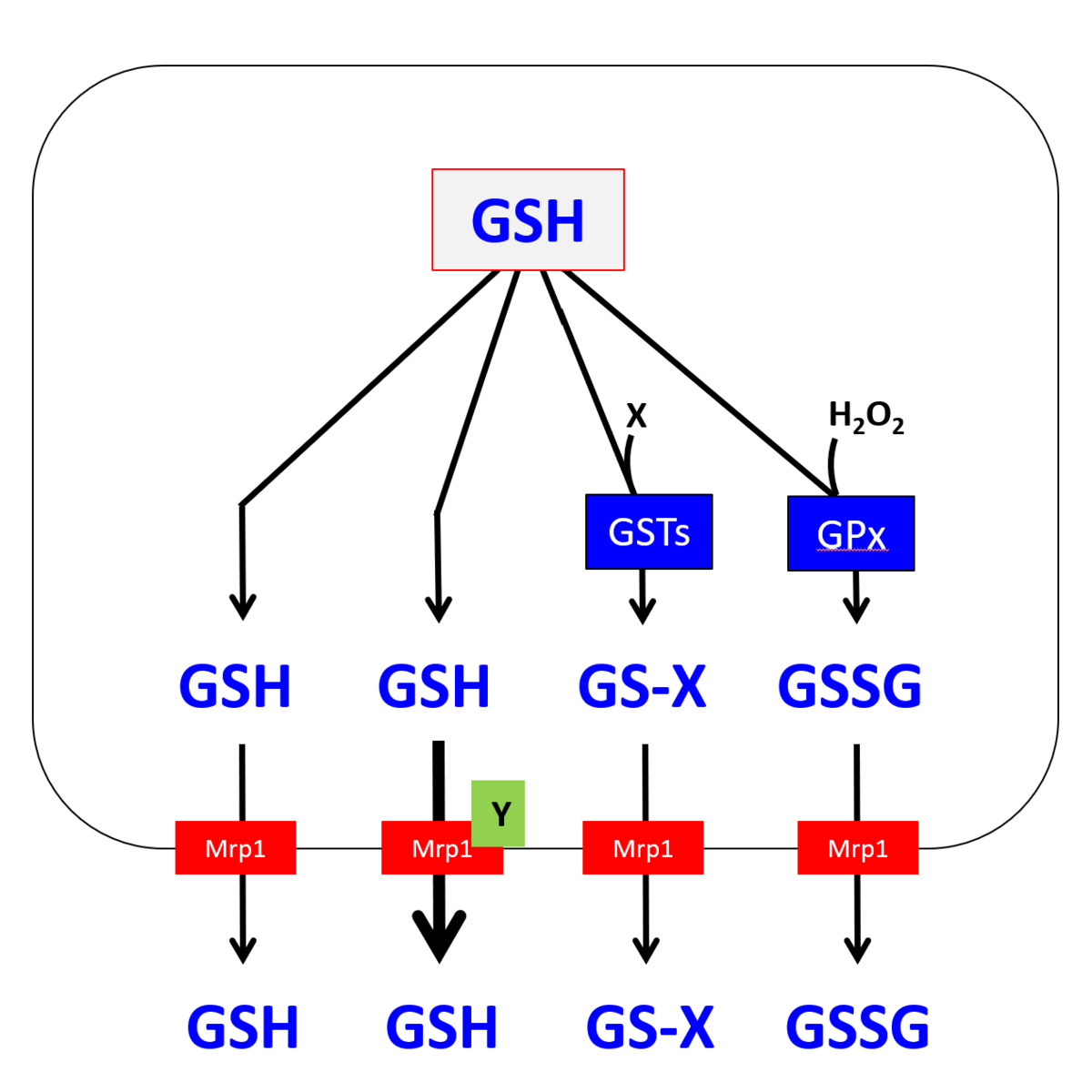Antioxidative defence and glutathione metabolism
Oxidative stress is caused by of an imbalance pro- and antioxidative processes in cells. An important antioxidant is glutathione (GSH), a tripeptide that is present in millimolar concentrations in all brain cells. GSH has essential function in the defence of brain cells against radicals, peroxides and toxins. We are investigating the synthesis, consumption, and regeneration of GSH in brain cells, the cooperation of astrocytes and neurons in GSH metabolism, the oxidation of GSH to glutathione disulfide (GSSG), the conjugation of GSH to drugs and toxins, as well as the multidrug-resistance protein-mediated export of GSH, GSSG and GSH conjugates from brain cells.
Recent publications
J. E. Willker, P. Watermann, R. Dringen (2025)
Oxidative stress induces the phosphorylation of NAD+ to NADP+ by NAD kinase in cultured primary rat astrocytes
Neurochem. Res. 50:337
doi: 10.1007/s11064-025-04588-4
R. Dringen, C. Arend (2025)
Glutathione Metabolism of the Brain – The Role of Astrocytes.
Journal of Neurochemistry 169:e70073
doi: 10.1111/jnc.70073
P. Watermann, G. K. Kalsi, R. Dringen, C. Arend (2025)
Differential effects of itaconate and its esters on the glutathione and glucose metabolism of cultured primary rat astrocytes.
Neurochem. Res. 50:24
doi: 10.1007/s11064-024-04263-0
C. Arend, I. L. Grothaus, M. Waespy, L. Colombi Ciacchi, R. Dringen (2024)
Modulation of multidrug resistance protein 1-mediated transport processes by the antiviral drug ritonavir in cultured primary astrocytes.
Neurochem. Res. 49, 66-84.
doi: 10.1007/s11064-023-04008-5
J. Steinmeier, R. Dringen (2019)
Exposure of cultured astrocytes to menadione triggers rapid radical formation, glutathione oxidation and Mrp1-mediated export of glutathione disulfide.
Neurochem. Res. 44, 1167-1181.
doi: 10.1007/s11064-019-02760-1
J. Raabe, C. Arend, J. Steinmeier, R. Dringen (2019)
Dicoumarol inhibits multidrug resistance protein 1-mediated export processes in cultured primary rat astrocytes.
Neurochem. Res. 44, 333-346.
doi: 10.1007/s11064-018-2680-y

